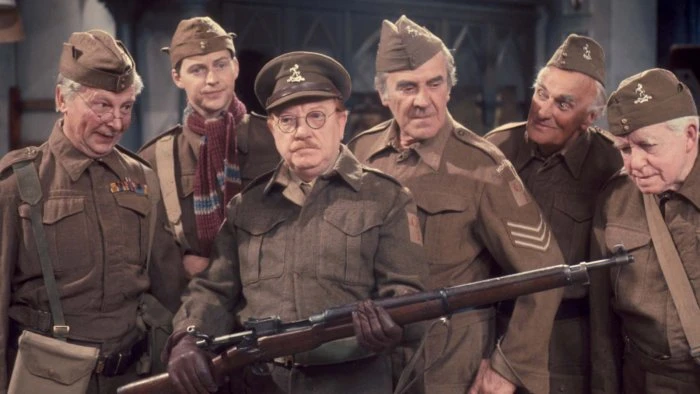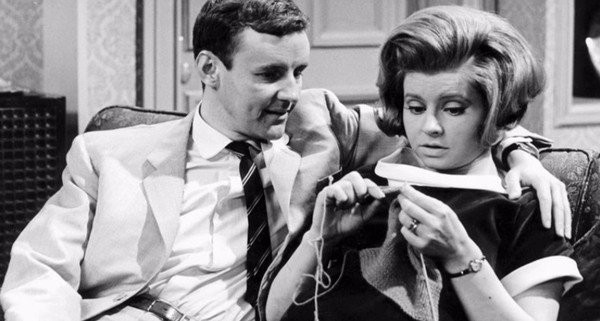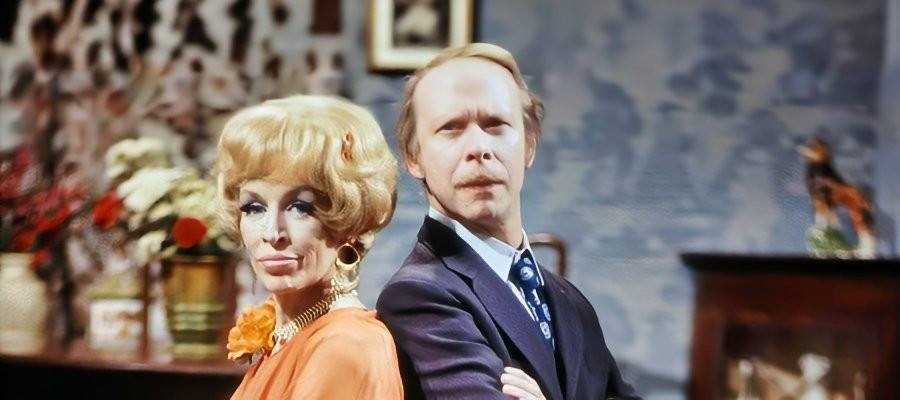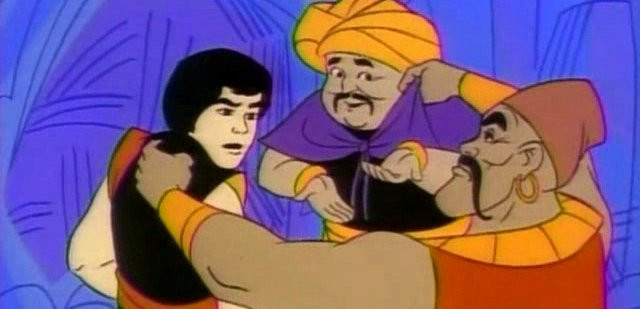
Dad's Army
1968 - United KingdomIf the British people can ever be said to have truly experienced a finest hour, it was surely during the darkest days of the Second World War, when invasion loomed, resources were scant, and only unshakable courage, resilience, and a firm belief in themselves stood between survival and collapse. And if British situation comedy can ever lay claim to a comparable moment of national greatness, then those golden half hours occurred between 1968 and 1977, with the eighty sublime episodes of Jimmy Perry and David Croft’s Dad’s Army.
At the forefront of an ensemble cast drawn from the highest echelons of British comic acting was Arthur Lowe, who delivered a masterclass in controlled pomp and misplaced authority as the blustering but unwaveringly patriotic Captain Mainwaring. Alongside him was John Le Mesurier as the unflappable and genteel Sgt Wilson, Mainwaring’s social and emotional opposite, whose indifference masked a quiet competence. Together, they led a rag-tag platoon of mismatched misfits in the Home Guard of the fictional coastal town of Warmington-on-Sea. Each week, the platoon faced the threat of German invasion with a combination of ill-preparedness and heartfelt British grit, rendered in half-hour slices of comic brilliance.
Drawing deeply from their own wartime service and memories, Perry and Croft infused the series with warmth, wit, and affection. They celebrated the eccentric but earnest men who made up Britain’s last line of defence, without ever tipping into parody or cynicism. It’s easy to forget now, but BBC1 Controller Paul Fox initially hesitated to commission the show, fearing it would mock the war generation. In reality, Dad’s Army became a loving tribute — not just to the period, but to the very spirit that helped Britain endure.

If the writing was the show's spine, then the cast was undoubtedly its beating heart. These were not just actors reading lines; they were seasoned performers who embodied the characters, often with little more than a glance or raised eyebrow. John Laurie gave us the gloriously pessimistic Scottish undertaker Private Frazer, with his ever-reliable refrain, “We’re doomed!”. Arnold Ridley OBE, the real-life veteran and playwright, brought tenderness and quiet dignity to Private Godfrey, a gentle soul with a weak bladder but a hidden wartime heroism. And Clive Dunn—then in his late 40s but playing a doddering septuagenarian, was unforgettable as Lance Corporal Jones, the excitable butcher whose cries of “Don’t panic!” became iconic.
Add to this an impeccable supporting cast: Bill Pertwee as ARP Warden Hodges, Mainwaring’s irascible rival; Ian Lavender as the earnest yet hapless Private Pike (“You stupid boy!”); Frank Williams as the oily vicar; and Edward Sinclair as the nervy verger. Each performer brought a distinctive comedic rhythm, enhancing scripts that were already rich in character and colour.
Beyond the television screen, Dad’s Army embedded itself into the national psyche. The theme song, sung by Bud Flanagan of the Crazy Gang, set a nostalgic tone, evoking both humour and pathos. The series spawned a BAFTA win for Best Comedy in 1971, a feature film produced by Columbia Pictures that same year, a West End stage play that toured the country from 1975 to 1976, and a long-running BBC Radio 4 adaptation which introduced the characters to an entirely new audience. A 2016 feature film reboot, though met with mixed reviews, underscored just how enduringly popular the original series remained.
By the late 1970s, Dad’s Army had become more than a comedy - it was a cultural institution. It offered not only laughter, but also a sense of national identity, particularly for generations who had lived through the war, or whose parents had. It struck a delicate balance, allowing us to laugh at the absurdity of bureaucracy and British class structure, while never ridiculing the genuine courage of ordinary people thrown into extraordinary circumstances.
Sadly, the majority of the original cast have now passed on, but their performances continue to march on in repeated showings, DVDs, and in the hearts of millions. The humour remains as sharp, the sentiment as stirring, and the characterisations as timeless as ever.
As long as the memory of that global conflict endures, so too will the memory of that quaint, chaotic, but steadfastly determined band of laughter-bringing warriors. For in Dad’s Army, Britain did not just find a sitcom, it found a mirror to its finest qualities: courage, eccentricity, decency, and above all, indomitable spirit.
Seen this show? How do you rate it?
Seen this show? How do you rate it?
Published on December 6th, 2018. Written by Marc Saul for Television Heaven.










